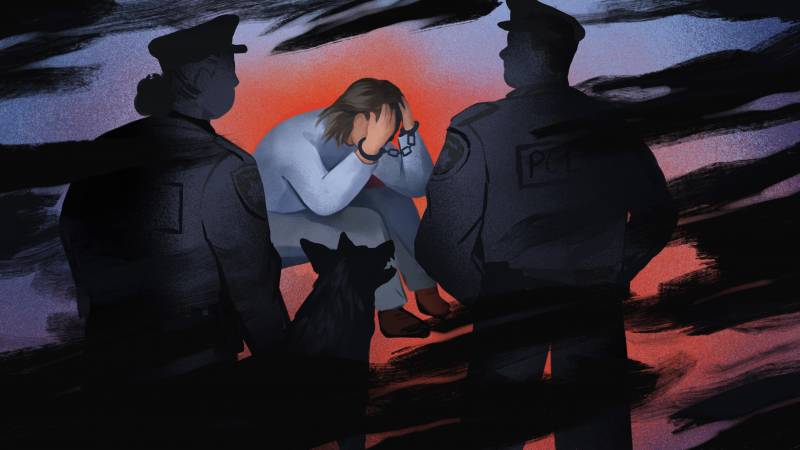In the small Northern California town of Rio Vista, a woman named Katheryn Jenks calls 911 for help. But after the police arrive, she ends up injured and inside a jail cell, facing serious charges.
On Sept. 30, 2018, the same day Katheryn is arrested, then-Gov. Jerry Brown signs a new law. State Senate Bill 1421 opens up long hidden police misconduct and use-of-force records, including files that uncover what really happened on the night of Jenks’ arrest and might change the outcome of her case.
For decades in California, when allegations of officer misconduct surfaced, police chiefs, city officials and agency leaders held press conferences or issued statements promising to investigate. But the findings of those investigations were confidential — and off limits to public scrutiny.
In response to the new law unsealing police misconduct and use-of-force files, a team of reporters from over 40 newsrooms, including KQED, set out to request records from every law enforcement agency in the state to find out how the shadow system of police accountability really works.
Just days after the new law went into effect, the town of Rio Vista released an internal investigation into the arrest of Katheryn Jenks. An investigation Jenks herself knew nothing about.

9(MDAxOTAwOTE4MDEyMTkxMDAzNjczZDljZA004))
